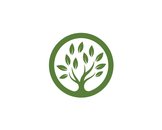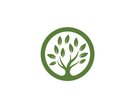Nordic Spatial Humanities
Linking, Building, and Sustaining Humanities Digital Spatial Infrastructures for Research in the Nordic Countries
Workshop 2: Bergen
September 2022
Workshop 2 (WS2) will focus on “Spatial ontologies”, and the main aim will be to draft common metadata and ontology principles in Nordic digital spatial infrastructures and to introduce the LOD case study of the workshop series. WS2 will start with keynotes on successful examples of working towards common metadata principles in the Norwegian cultural heritage sector as well as on best practices of research data management in accordance with Open Science and FAIR principles. An explorative mini-workshop will give an opportunity to discuss the metadata principles and ontologies used in the participants’ sectors as well as how these could become transferable and interoperable to ensure data beyond cultural heritage sector and national boundaries can be linked. To ensure meaningful in-depth contributions to this workshop component, the pre-defined groups from WS1 will have prepared ontology overviews in-between workshops.
The second major component of WS2, the set-up of the series’ case study, is introduced by detailed presentations of the Icelandic Saga Map’s, the Norse World’s, and the ongoing Mapping Lived Religion project’s approaches to metadata, ontologies and re-use of data. The former two will also feature in WS3. The participants will share ideas on how to make the datasets LOD compatible and work on establishing conceptual and ontological links between the two in a dedicated mini-workshop. The final component of WS2 is the continuation of the work on the European grant application. This component is introduced by a keynote on successful applications for an ERC Infrastructure Call. Participants will work on detailed descriptions of the work packages identified in WS1 in a collaborative writing platform.
Preliminary Programme
Welcome to the 2nd Spatial infrastructures workshop at the University of Bergen Library The workshop will use the flipped classroom approach. Participants are provided with a set of instructional videos and written exercises and are expected to attempt to complete them on their own time prior to the tutorial event, preferably at least a week in advance. The workshop itself will be dedicated to working on own datasets, asking questions and getting a feeling of the community around.
19 September, Day 1
09.00-09.15 Welcome
09.15-10.00 Intro to Open Refine
10.00-11.00 Data Cleaning
11.00-12.00 Group work
12.00-13.00 Lunch
13.00-14.00 Data Transformation
14.00-15.00 Group work
15.00-15.30 Coffee
15.30-17.00 Data Augumentation
17.00-17.10 Rounding off
20 September, Day 2
09.00-09.15 Recap of yesterday
09.15-12.00 Make RDF out of your data
12.00-13.00 Lunch
13.00-14.00 Group work
14.00-15.00 Group presentations of RDF data group work
15.00-15.30 Coffee
15.30-17.00 Group presentations contd.
17.00-17.10 Rounding off
21 September, Day 3
09.00-09.15 Recap of yesterday
09.15-10.00 Merging RDF-datasets
10.00-11.00 Group work
11.00-12.00 Group work presentations
12.00-13.00 Lunch
13.00-14.00 Way forward, discussion
14.00-15.00 Rounding off
Preparation for the workshop:
1. Send to Øyvind and Peder 500-3000 lines of dataset. Make sure your data comes from several parts of your dataset(s) and as much as possible reflect the entire amount of data.
2. Download the latest version of OpenRefine (3.6.0) and familiarize yourself with the documentation for the software. You will also need to install the RDF Transform extension, but more on this in 3.e below.
3. Watch the instruction videos and documentation of Open Refine as follows:
a. Introduction to OpenRefine.
b. Data Cleaning in OpenRefine, use data as given on page and follow video and blog.
c. Data Transformation introduction. For testing, use the instructions in this video (see blog and use data above).
d. Data Augmentation (how to enrich your data).
e. Make RDF Out of Your Data video (1) and video number 2 relate to linked data (also a longer video here on RDF and OpenRefine).
For those of you who do not have much prior knowledge about RDF, Linked Open Data and CIDOC-CRM, we have added a couple of introduction videos also.


